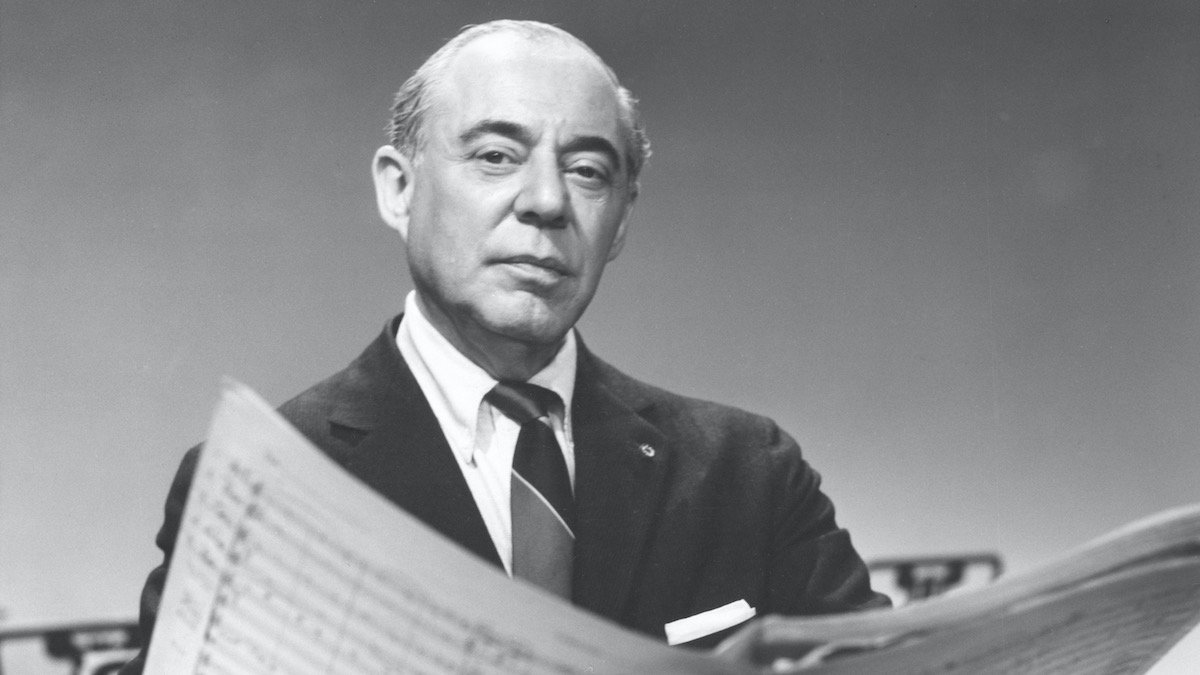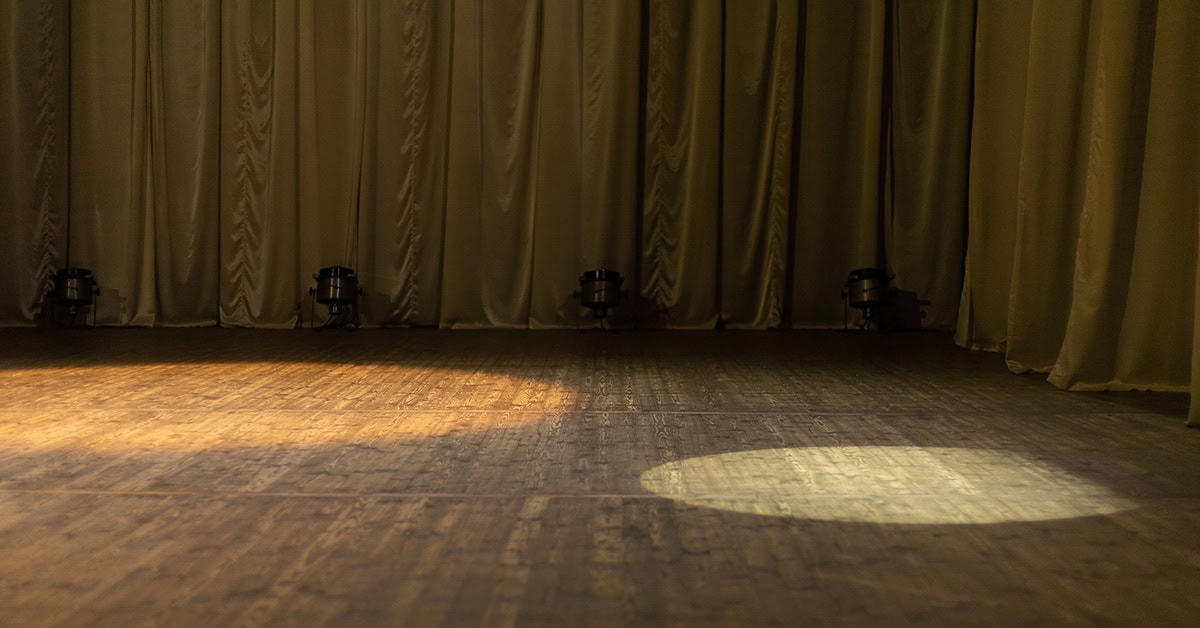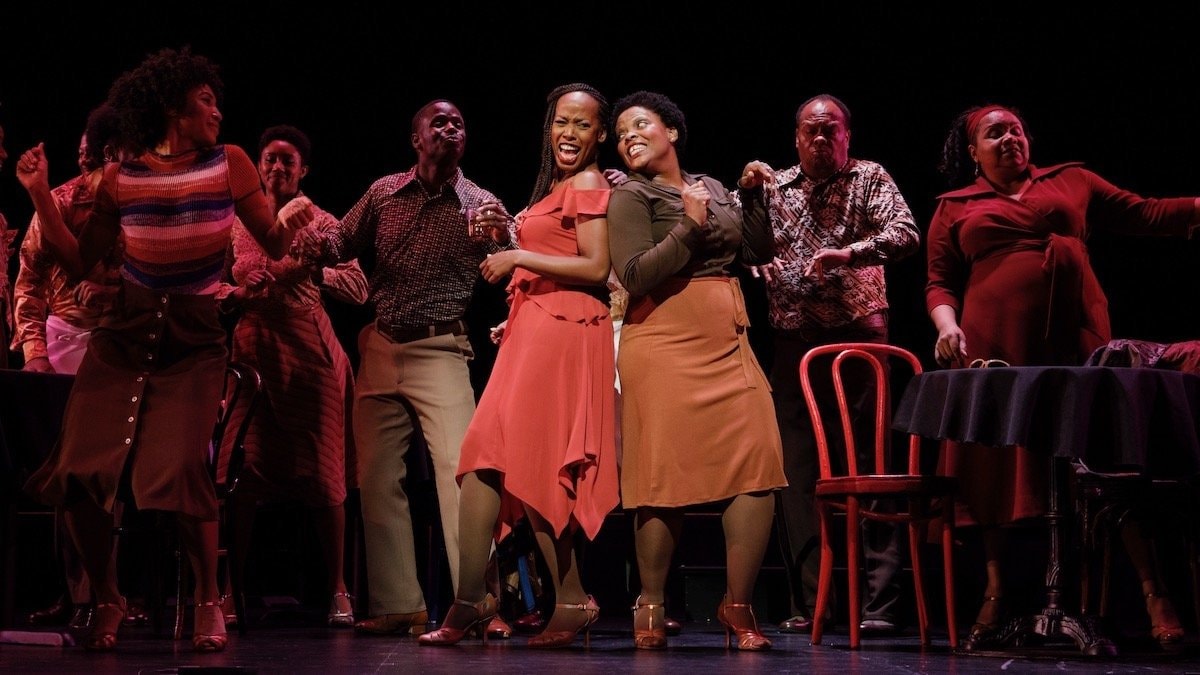
“I think that the theater is my medium. I don’t think that I have any business trying to write abstract music. I don’t think I’m a symphonic composer. And, I can say everything I want to say inside the walls of a legitimate theater.” – Richard Rodgers
In a career that spanned over six decades, Richard Rodgers’ contribution to the form of Musical Theatre cannot be overstated. While he enjoyed success in his first writing partnership with lyricist Lorenz Hart, it was his collaboration with Oscar Hammerstein II that allowed both men’s creative voices to flourish. Where musicals had previously been light and confectionary, the Rodgers & Hammerstein brand of theatre inspired pathos and often served as vital social commentary.
Rodgers was the first person to obtain all four prominent entertainment awards: the Emmy, Grammy, Oscar and Tony. Along with composer Marvin Hamlisch, he is the only other person to have won all four, plus the Pulitzer.
We celebrate the anniversary of Richard Rodgers’ PEGOT status by taking a look at his decorated works.
Contents
PULITZER
Drama, South Pacific
The 1950 Pulitzer Prize for Drama was awarded to Richard Rodgers and Oscar Hammerstein for a comedy about racism and gender roles set during World War II. It marked the second time a musical had won (following Of Thee I Sing in 1932) but the first time the awarding committee included the composer in the accolades.
South Pacific (US/UK) based on James A. Michener’s Tales of the South Pacific, was groundbreaking for several reasons, not the least of which being its bold-faced and explicit condemnation of prejudice. It was initially met with controversy and ire from the show’s producers. Many felt, at best, the subject matter was inappropriate for a musical comedy. How could such a song as the didactic “You’ve Got To Be Carefully Taught” be found in the same show as the jaunty “There Is Nothin’ Like A Dame” and the stirring “Some Enchanted Evening”? At worst, its existence signaled alleged communist sympathies in its writers.
No show in their canon expresses the authors’ progressive ethos better than South Pacific. While the source material only gives a passing mention of race relations at the Espiritu Santo Naval Base, the show elevates it to the central theme. Through its music and lyrics, the show firmly drives home its thesis: hatred is never born, it’s built. When producers entreated the writing team to remove “You’ve Got To Be Carefully Taught” from the show, Rodgers & Hammerstein were stalwart in their convictions that this song represented the absolute heart of the piece, and that it was to remain in the show or the curtain would never rise on South Pacific.
Richard Rodgers and Oscar Hammerstein won the argument, and the curtain would go on to rise 1,925 times on the musical’s original Broadway run.
EMMY
Best Score, The Valiant Years
In 1952, Rodgers collaborated with Robert Russell Bennett (frequent orchestrator of R&H musicals) on NBC’s series Victory at Sea. Years later, rival studio ABC Television approached him to compose a symphonic portrait of British Prime Minister Winston Churchill for their 1960 documentary series The Valiant Years, as he had proven to be tremendously adept at capturing the zeitgeist of a world at war.
The series spanned 27 episodes and featured over nearly 800 minutes of original music. “The Main Theme” is both brassy and bombastic, an appropriate encapsulation of the man who saw his nation through their darkest hour, whereas the underscoring for the Battle of Dunkirk is appropriately harrowing, violent and discordant. Rodgers’ musical storytelling rightly earned him the Emmy Award for his unrivaled talent, which thrust viewers into the front lines of tragedy and heroism.
It was Richard Rodgers’ first project since the passing of Oscar Hammerstein. It was also the piece that would elevate him to PEGOT status.
GRAMMY
Best Show Album (Original Cast), The Sound of Music
The Grammy Awards were still in their infancy when Rodgers & Hammerstein won for The Sound of Music (US/UK). The iconic golden gramophone had only been awarded for musical excellence for three years. The musical theatre category was on its third name change, from Best Original Cast Album (Broadway or TV) to Best Broadway Show Album, to Best Show Album (Original Cast). The ceremony would not be televised for another decade, which skyrocketed its prestige in the public eye.
Rodgers had been double-nominated at the first Grammy Awards in 1959 for the musical Flower Drum Song (US/UK) as well as his score for Victory at Sea. But Meredith Willson won the prize instead for The Music Man. The contemporaries met again on the nominees list two years later: Mr. Willson for The Unsinkable Molly Brown and Rodgers & Hammerstein (the latter, posthumously) for The Sound of Music.
The album was recorded a week after its blockbuster Broadway opening starring Mary Martin and Theodore Bikel. It dominated comfortably as Billboard’s #1 best-selling album for four months. To this day, the Original Broadway Cast Recording of The Sound of Music is hailed as the definitive representation of Rodgers & Hammerstein’s endmost collaboration.
OSCAR
Best Song, “It Might As Well Be Spring”
In the beginning of State Fair (US/UK), young Margy Frake (played by eventual Oscar nominee Jeanne Crain) is packing for the fair and meditating on her age, her looks, and her (lack of) prospects. She’s a young person who wants more out of life. What could be more relatable? Hammerstein’s evocative lyrics at once mention jumpy puppets on strings, but immediately follow up with grave discontent. The same verse that gives us bluebirds and robins also offers us spiders.
Rodgers’ initial idea was to compose in contrast to the lyrics with an upbeat and chipper melody. But Hammerstein and the film’s music director Alfred Newman encouraged him to embrace the melancholy
of this quintessential “I Want” song. Margy sits framed by her bedroom window, singing of her future through a haze of legato accidentals in the winds and strings. Rodgers’ score so perfectly delivers deeply chromatic isn’t-even-spring fever, your nose will start to itch from the pollen.
“It Might As Well Be Spring” was nominated for Best Original Song with a dozen others at the 18th Academy Awards. This Oscars ceremony was the first since the end of World War II. Hollywood, no different from the rest of the nation, was keen to return to pageantry, celebration and glamor.
Accordingly, Richard Rodgers took home a solid bronze gold-plated statuette for “It Might As Well Be Spring” rather than the plaster replicas that had been distributed during the years of conflict.
TONY
Best Score, South Pacific
April 9, 1950 was a tremendously fortuitous night for everyone sitting at Rodgers & Hammerstein’s table at the Waldorf Astoria for the 4th Annual Tony Awards Ceremony. While the writing team already had two mega-hits on their scorecards, Oklahoma! (US/UK) and Carousel (US/UK), both shows had premiered prior to the inaugural Tony Awards ceremony in 1947. The musical about life on a naval base in World War II dominated the evening, sweeping every category for which it was nominated.
The show had opened a year and two days prior to the awards ceremony, and in that time established itself as an undisputed cultural phenomenon. Those lucky enough to snag seats would display their ticket stubs as a status symbol on their desks alongside pictures of their kids and sweethearts. Those who were not lucky enough, however, made use of counterfeit stubs so they could pretend to be in the club.
The show was unanimously lauded as a turning point in the form of musical theatre, one reviewer noting “every number is so outstanding that it is difficult to decide which will be the most popular.” With respect to that critic, the distinction belongs squarely to “Some Enchanted Evening.” The soaring melody, the lyrics structured by the sight, sound and the soul’s flight of first love… it is the quintessential Rodgers & Hammerstein collaboration. Both Rodgers and Hammerstein were recognized for Best Score and Best Libretto with the American theatre’s greatest honor.
The musical also broke a record that has yet to be repeated to this day: all four musical acting awards were collected by South Pacific cast members, including Juanita Hall, who enjoyed the further milestone of being the first Black actress to earn the Tony for Best Featured Actress in a Musical.
In all, South Pacific won 10 Tony Awards that year. Rodgers & Hammerstein’s shows would go on to win 34 Tony Awards.
And counting.
For more information about licensing a production of a Richard Rodgers musical, visit Concord Theatricals in the US or UK.

Recommended Shows for Drama Festivals

The Truth Behind… The Normal Heart


